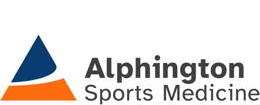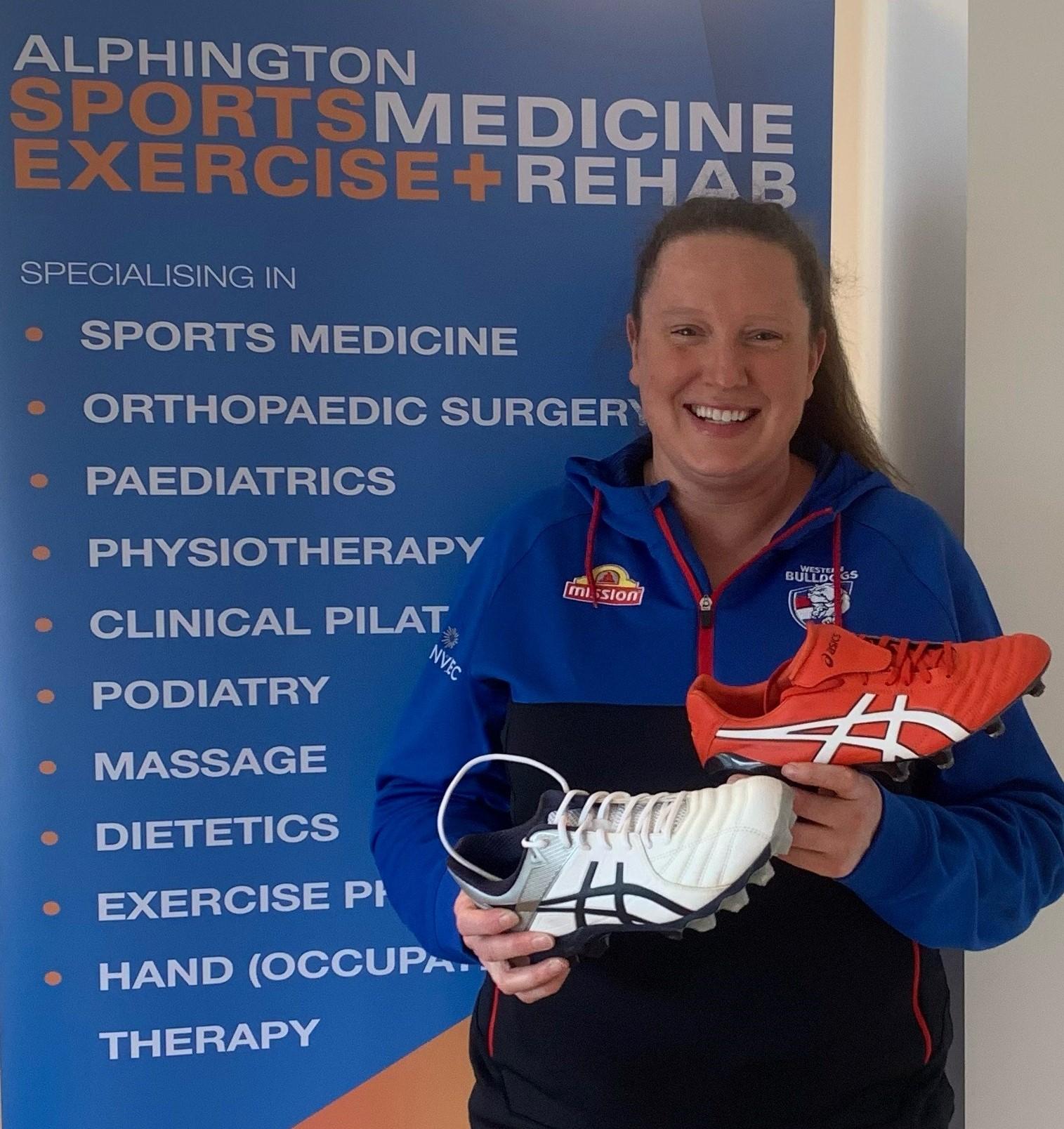With the 2021 AFL season now complete, we chatted with Alphington Sports Medicine Clinic Podiatrist Emma Poynton about her involvement with the Western Bulldogs Football Club.
How and when did you become involved with the Bulldogs?
I first became involved with the Western Bulldogs at the end of 2014 in preparation for the 2015 AFL season. Then in 2016, when the AFL established an AFLW program, I joined the club’s medical team who also care for the AFLW football department.
What does your role with the club, and across each of their teams, involve?
As the Western Bulldogs club Podiatrist, I cover all four teams – The AFL, AFLW, VFL and VFLW. This means I consult on their lower limb and foot injuries, general maintenance (i.e blister management), as well as their orthotic and footwear prescriptions. My principle role is within the AFL department, which includes weekly visits to the club year-round.
During the AFL pre-season, November to February, my priority is to ensure all the players are ‘screened’ and fitted with appropriate runners and boots for their individual biomechanics, as well as any additional devices such as orthotics they may require. It’s important to ensure each player is well set up for their high load pre-season.
As part of my pre-season player screening process, I complete a video gait analysis of all AFL listed players. This ensures we have video footage of each player walking and running should we need a baseline to reference at a future date during the season. This also helps with their individual footwear prescription needs.
Additional to the pre-season biomechanical assessments and footwear prescriptions, during both the pre-season and the home/away season, I engage with all general care such as blisters, callous and nail injuries. Then, if or when they occur, it’s not uncommon for me to be involved with the club’s multidisciplinary team consulting on stress, acute or traumatic injuries.
What do you find most enjoyable?
I consider myself very lucky to be involved with elite sport and the high pace that occurs within this environment. A weekly trip out to the club is always fun, you work hard, but it’s enjoyable just working in a multidisciplinary club environment. You get to work alongside highly motivated and talented colleagues, whom you can learn from to grow your own clinical skills. And you all have the one goal in mind – winning weekly games of footy and a premiership!
What do you find the most challenging?
The biggest challenge is possibly the pace at which the AFL operates. Each week is calculated to a schedule based on the number of days to the next game. It’s like a child counting down the days to Christmas. When a player is injured… you need him or her match fit and ready to play ASAP.
How does this differ from other sports you are involved in / athletes you have worked with?
The main comparison is when you compare the professional elite athlete, versus the amateur ‘weekend warrior’. Recreational athletes often do not have the pressures to be repaired immediately and can pace their recovery. The flip side to this is recreational athletes often need to juggle work as well as their sport and associated injures. For the Western Bulldogs AFL players this is their job, 100% of their day is focused on training and injury management/rehab should it be required.
Because of the ongoing COVID situation, it was obviously another unusual season – how do you think this effected the players, club staff, and your work with them?
Covid has forced operational changes at the club both mid-week and on game days. It has created many moving parts that continually force short notice changes.
Beyond my required weekly COVID tests, I personally have experienced being locked out. A lockout is when the AFL sets the permitted staff numbers onsite at the club to the minimum essential staff only. It’s implemented by the AFL to reduce the leagues COVID exposure risks. For my podiatry roll this would often lead to telehealth calls or even SMS photo consults between the players and myself.
Overall, it has been extremely taxing for all involved. For the game day staff and players, it regularly resulted in many weeks in isolation/interstate away from their family.
How do you feel this experience will help you in treating your patients at Alphington Sports Medicine Clinic?
Without a doubt, as I head into my 8th year working within the Western Bulldogs organisation, I have gained valuable clinical experience from working within the clubs multidisciplinary allied health team.
From the outside looking in, my job is to ‘fix people’. I work with individuals to ‘fix’ those injured and help them return to their daily activity needs and sporting endeavours.
Having been exposed to, and working directly with the AFL players, I have become accustomed to their expectations and their treatment outcomes required. These treatment models can be easily implemented to all my patients, whether they are elite athletes or recreational athletes, from AFL clubs or other sporting codes.
For more information about Emma Poynton, or to make an appointment go to: https://www.alphingtonsportsmed.com.au/practitioners#emma-poynton- or Phone 9481 5744.



